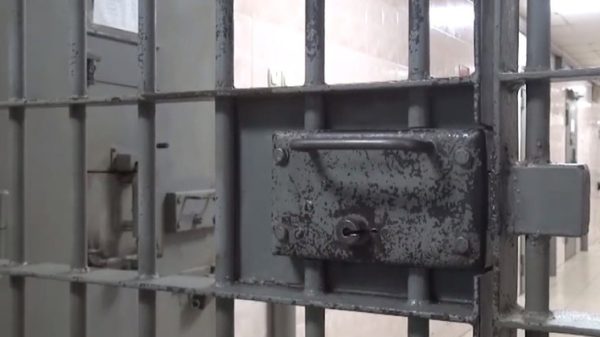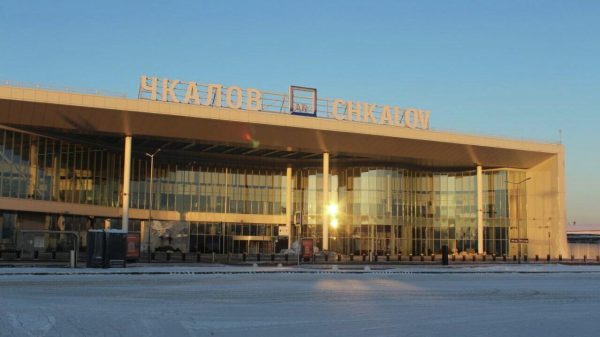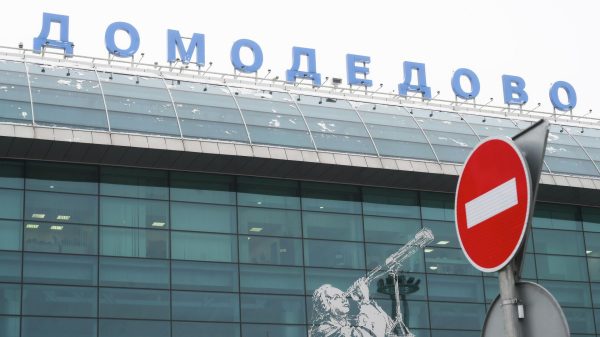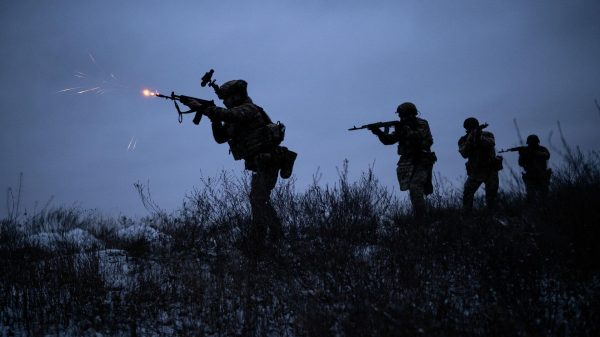
Pub owner Brian Moore, 54, is busy with customers enjoying a late lunch before they head out into the sunshine.< /p>
However, recent months have been marred by cancellations and a sharp drop in tourist numbers at the Mariner Hotel, which overlooks the waterfront of Drogheda, Ireland's largest city.
“I'll be 40 years into the business next year, and I’ve never seen it this bad,” Moore says.
On the other side of the town centre, across the River Boyne, Drogheda's largest hotel has been housing families fleeing conflict, violence and insecurity since March.
Its 113 rooms make up the majority of the town's capacity, leaving other visitors with only a few alternatives The options are a small boutique hotel, a hostel or a private rental.
“You'll see a lot of small businesses closing. Once you close the main source of placement anywhere, it has a huge impact,” Moore says.
New residents of the D Hotel, meanwhile, speak of relief. “We waited three years for a visa to Afghanistan,” says a man in his early twenties. Last month he traveled to Ireland by plane with his 47-year-old mother and two younger brothers after he was granted protection.
The number of people making asylum claims in Ireland has almost tripled in the past year compared to pre-Covid levels, and the Irish government says UK plans to deport asylum seekers to Rwanda are 80% behind recent increases.
Under Rishi Sunak's flagship policy, some asylum claims could soon be processed in the East African country, with successful applicants granted refugee status there.
 Ireland is paying around €25 million to house asylum seekers at the D Hotel in Drogheda for two years. Photo: PAUL FAITH
Ireland is paying around €25 million to house asylum seekers at the D Hotel in Drogheda for two years. Photo: PAUL FAITH
Drogheda's 44,135 residents have been hosting refugees for two decades, but the sudden loss of the last major hotel without any consultation has tested that.
“Everyone is angry and frustrated, but few are speaking out,” says Moore.
“Everyone is angry and frustrated, but few are speaking out,” says Moore.
p>
The struggle in the city is another symptom that the strain on Ireland's asylum system has reached a breaking point.
An average of 60 people have applied for protection each year this year. day.
To meet demand, the government needs to find accommodation for the 420 arrivals each week amid a long-running housing crisis.
The tensions are most pronounced an hour's drive from Dublin, where some picturesque areas are located. The Grand Canal and other areas near the Office of International Protection were fenced off.
About 1,780 migrants were forced to sleep on the streets after housing ran out in December.
The result is repeated. The cycle of growing tent cities is cleared only to appear somewhere else.
But outside the capital, many towns such as Drogheda are facing their own emergency as the government struggles to find housing to keep women and children off the streets.
In March it warned that this could soon become impossible .< /p>'Safety is why we are here'
In Drogheda, a Nigerian man stands outside Hotel D, where he shares a room with his pregnant wife, 15-year-old son and 11-year-old child. daughter.
He has gone out to clear his mind and is trying to get an update from the authorities on their asylum claim.
He is well aware of the political dispute between Ireland and the UK and that he and his family are unlikely to no government needs it.
“You know, this news might make you depressed,” he says wearily, asking what the latest news is.
He says he has met many fellow migrants who fear they will be sent to Rwanda but insist they came straight from France to Ireland.
Nigerians account for one in three asylum claims this year, with This is why many migrants talk about murders of relatives, kidnappings for ransom and violence.
“Safety is the main thing. That’s why we’re here,” he says before making another call.
The Irish government claims that 80% of people in its situation entered the country from the UK.
However, its own data shows that the number of applications began to rise rapidly even before the Rwanda Policy was announced in April 2022
From January to March that year, the number of monthly arrivals more than doubled, from 400 to 1,040.
The numbers have risen sharply since then, with more than 2,000 arrivals last month.< /p>
Experts are also skeptical. statements of the authorities.
“We believe that 80% is extremely high. The way the government has calculated this figure is problematic,” says Nick Henderson, chief executive of the Irish Refugee Council.
The Irish government has admitted that its figures are based on the assumption that anyone who has not applied for asylum immediately at the airport or port arrived from the UK.
Despite this, “there is no doubt that there is an increase in the number of people seeking protection. This can be partly explained by UK policy,” says Henderson.
Rishi Sunak said rising numbers of asylum applications in Ireland were evidence his policies were “already having an impact”.
However, Henderson says there are broader factors at play. He points to pent-up demand from Covid, wars on Europe's fringes and many European countries' toughening approach to asylum seekers.
«These are exceptional times,» he says.
Since the illegal Since Russia's invasion two years ago, Ireland has hosted more than 100,000 Ukrainians, far more in proportion to its population than countries such as Germany, France and Italy.
Kiss of Death
At the Mariner Hotel, opposite the four-star D Hotel, all these factors have led to a significant drop in Moore's clientele.
“We lost a charity event for cystic fibrosis. We also lost our 50th anniversary party because people traveling down have nowhere to stay,” he says.
The lost income from each of these events runs into “thousands” of euros.
p >The government considered leaving some of Hotel D's facilities for tourism, but said this was not possible for security reasons.
As a result, Moore is facing a high number of canceled bookings.
“People have always only booked rooms, so we invited breakfast clients to come here because it's a little cheaper and maybe they'd prefer that. You also miss all the people who would come over for dinner while they were staying at the hotel,” he says, adding that many Irish people used it as a base when visiting relatives.
Business hit The situation has been made worse by high inflation over the past two years, which has forced many local residents to tighten their belts.
“People would rather drink at home than go to the pub. I never thought I'd see this in Ireland,» says Moore.
 Mariner owner Brian Moore says he's in the thousands euros from his own pocket Photo: Paul Faith
Mariner owner Brian Moore says he's in the thousands euros from his own pocket Photo: Paul Faith
The Irish government is paying around €25m (£21.5m) to house asylum seekers for two years.
There are rumors in the town that bartenders have quit their jobs over 60,000 wages euros, catering to migrants.
But although the government initially said Hotel D could accommodate up to 500 people, a fire soon broke out. certification will only allow 240 residents.
This means that the annual cost per person will be more than 50,000 euros.
Other tourist accommodations saw their prices jump overnight after the hotel closed to the public. , says one industry insider.
Even those who advocate for better conditions for asylum seekers say it was a mistake.
“This is the perfect bad example,” says Henderson.
Irish MP Fergus O'Dowd, who is a member of the ruling Fine Gael party, is also angry.
“If a county or city loses its main hotel as a result of an arbitrary decision by a government minister without any notice or notice, that is completely unacceptable. I want transparency in this decision,” he says.
 The mood in Drogheda worsens as it struggles to cope consequences of housing asylum seekers. Photo: Paul Faith
The mood in Drogheda worsens as it struggles to cope consequences of housing asylum seekers. Photo: Paul Faith
Moore isn't the only one feeling the pain of losing tourists.
Many of them arrived. at the hotel, needing equipment to explore the surrounding countryside. That has given outdoor store Regatta in the Scotch Hall shopping center next door plenty of opportunities to sell rain gear and practical footwear.
Footfall is down markedly from last year, says one store owner who prefers not to use it. name.
“I don't mind helping someone. But at the same time, where do we fit in?” — she asks.
—We could lose our jobs. I'm not saying we will, but we could. The possibility is in the back of your mind,” she adds.
Many locals believe there has been a wider decline in Drogheda, adding to such concerns.
“I grew up in this town. Most family businesses are closing. There were five [store closures] in the paper in one week,” she adds.
Similar concerns are echoed by Ricky Morgan, owner of The Golf Bag across the street from the hotel.
“You really miss tourists. Did you notice what happened last month? People came here for parties and family celebrations. They went shopping and walked around the city. They're all gone,” says Morgan.
 Ricky Morgan says Drogheda was flipped over with “just a click.” pens' Photo: Paul Faith
Ricky Morgan says Drogheda was flipped over with “just a click.” pens' Photo: Paul Faith
Like many local residents, he was shocked by the lack of consultation and how quickly the decision was made by central government in Dublin.
“This has nothing to do with the poor souls who are asking for asylum, my God. their. But the government just came and took [Hotel D]. Imagine if you demolished all the hotel rooms in Dublin, it's unimaginable. But since Drogheda is smaller, it's just a stroke of the pen. Everything seems to be done without telling anyone. It's very sad that this happened,” says Morgan.
Another person who works in the tourism industry, who would not give his name, put it more bluntly.
“It was just «the kiss of death,» they say.
Housing crisis
Being an island on the periphery of Western Europe has long protected Ireland from the pressure of rising asylum claims felt in neighboring countries.
When the war in Syria triggered an influx of almost two million people into the European Union in just 15 months in 2015 -2016, Dublin received just 3,370 asylum applications.
In fact, for a long time Ireland's problem has been people leaving, not people coming.
No other European country has had as large a population emigrate in search of better prospects as Ireland has in recent history.
Although asylum seekers make up only a small proportion, the overall number of immigrants has increased rapidly.< /p>
In the 12 months to January, applications were up 193% compared with the same period just before Covid.
This comes after strong economic growth and falling unemployment caused one of the the most serious housing crises in Europe.
Since 2010, rents have risen by 105%, more than four times the EU average.
Immigration controls have become a source of concern, with 36% of people citing them as a major concern in the latest survey, according to Ipsos data released Friday, up from just 7% in 2022 year.
This coincided with a hardening of the political stance towards asylum seekers and refugees by the majority coalition of the centre-right parties Fianna Fáil, Fine Gael and the more left-wing Green Party.
This week they announced payments to Ukrainians living in government-provided accommodation, such as hotels, will be cut from €232 to €38.80 per week from August.
The government will consider further cuts to benefits in the coming weeks.
Main left-wing opposition party Sinn Fein appears to be struggling to convince voters it could do a better job of dealing with the surge in asylum applications.
Support has fallen 11 points since September, according to an Ipsos B&A poll, as public concern over immigration has grown.
Meanwhile, independent candidates, many of whom are campaigning to cut immigration – 17% of respondents.
The tightening position marks a sharp departure from the policies of recent years.
In 2021, Children's Minister Roderick O'Gorman announced that asylum seekers would be given their own front-house accommodation in four months, and would be allowed to work after six months.
Two years later, the Integration Department tried to beg people to stay away.
On 24 January 2023 he tweeted: «The Irish Government asks those considering seeking asylum in Ireland who are currently in safe accommodation not to travel to Ireland at this time (…) This is due to the severe housing shortage.»
Meanwhile, the spat with the UK continues.
This week it emerged that the UK had taken back 50 migrants who tried to cross the border into Northern Ireland on buses from Belfast to Dublin — despite that Rishi Sunak insisted he has «no interest» in welcoming anyone back.
Meanwhile, the Belfast High Court has ruled that parts of Britain's Illegal Migration Act that paved the way for the Rwandan scheme must be repealed in Northern Ireland.
Tent cities  Migrants sleep in tents outside the international defense office in Dublin. Photo: REUTERS/Clodagh Kilcoyne
Migrants sleep in tents outside the international defense office in Dublin. Photo: REUTERS/Clodagh Kilcoyne
One of the first to notice the sharp rise in the number of asylum seekers in Ireland was business owner Michael Finlay.
For 10 years he ran the Punnet Food Emporium cafe and greengrocer on Mount Street in an affluent area of Dublin near the Grand Canal.
His shop is around the corner from the International Protection Office (IPO), which is the first a stop for people seeking asylum.
The first tents appeared near his business about a year and a half ago. Over time, they multiplied.
“I had to move 10 to 12 tents every morning before I could open the business,” says Finley.
It was like “life in a movie.” » .
The street has been surrounded by large fences since early May, when authorities relocated 285 men who had been living there in tents for months.
“It looks great,” Finley says dryly.
Is he sure his problem is behind?
“I don’t have much confidence,” he says. You only have to walk two minutes down the road, where tired people linger outside the IPO building, to understand why.
There are men and families with children there. The woman with the stroller says she is from Syria.
“Do you know where I can get help?” asks a young Palestinian. Having difficulty speaking English, he hands over his phone with the message: “Hello, I [have been denied] housing. I was a cancer patient. I want to rent an apartment because I have no immunity and I have a cold. I have medical reports. Help, please.”
He says he arrived in Ireland on a ferry from Turkey.
But single men traveling without families have little hope of being provided with anything more than a tent and sleeping bag. , despite Ireland's commitment to housing them.
Early that morning, Gardaí flew out to remove 100 tents near the Grand Canal, which is now covered by a fence.
 Asylum seekers have been forced to remove their tents along Dublin's Grand Canal, but numbers continue to pop up across the city. Photo: Brian Lawless/PA Wire
Asylum seekers have been forced to remove their tents along Dublin's Grand Canal, but numbers continue to pop up across the city. Photo: Brian Lawless/PA Wire
The men in tents were taken by bus to Crooksling in southwest Dublin and Dundrum. Those who missed it don't know where to go.
Within a few hours, more tents are appearing in East Wall and Ringsend.
In the Dáil, Jennifer Whitmore of the Social Democrats tells Tánaiste Micheál to Martin about how he would react to the new tents.
“I hope you have a good supply of fences, Tánaiste,” she tells him.
The following day, tents appeared again along the Grand Canal.
The number had risen from 40 earlier this week to 90 by Thursday, according to Irish media.
p>Conversations “cannot start and end with agreement every time,” warned Taoiseach Harris.
“We beat Covid, but not the refugee crisis”  Since then, the streets around the Dublin International Protection Office have been fenced off. Credit: Paul Faith
Since then, the streets around the Dublin International Protection Office have been fenced off. Credit: Paul Faith
Despite the dire circumstances, people waiting outside the IPO say they are grateful to be in Ireland.
Sleeping in a tent on concrete for two months is still better than the alternative, according to a Nigerian man. He chose not to give his name.
“It's all about safety. In my country, you go to work and you don’t know if you’ll come back in the evening,” he says.
He decided to leave his home in northern Nigeria after his brother died. killed and threats of violence became too strong.
He traveled to the capital Lagos and paid an agency to help him fly to Belfast. Upon arrival, his assistant took his passport because he could not pay his outstanding debts.
Like other Nigerian migrants, he speaks of a constant fear of being kidnapped.
In January, Amnesty International expressed concerns about the Nigerian government's failure to stop the rise in kidnappings for ransom.
“If my country is safe again, I will go. Ireland is good, but home is home,” he says, adding that he just wants to find a job.
Another Nigerian says he went to London before coming to Dublin.
“I don't know if I'll [still] be alive [if I'm sent to Rwanda]. I just left my country. They killed my father and my mother,” he says.
He says his parents were politicians and that he has a degree in political science from his home country.
The man says he was surprised he received any support at all.
“I didn’t expect [to receive the money]. I really appreciate Ireland,” he says.
“When everything is settled, I will contribute. I will find a job and work hard. I hope God continues to bless this country.»
Peter Walsh of the Migration Observatory at Oxford says a common misconception about migrants is that they are uneducated.
To leave an unsafe country, “you need resources because it costs thousands and thousands of euros,” he says.
“The people you see are the ones who were able to get funds and tend to get better.” educated and middle class.»
 Restaurant owner Clint Hamilton says those who speak out risk being stigmatized racists. Photo: Paul Faith < p>Shortly before the IPO, Clint Hamilton breathes a sigh of relief: the tents outside his small Italian restaurant Mamma Mia are finally gone.
Restaurant owner Clint Hamilton says those who speak out risk being stigmatized racists. Photo: Paul Faith < p>Shortly before the IPO, Clint Hamilton breathes a sigh of relief: the tents outside his small Italian restaurant Mamma Mia are finally gone.
The government has banned local residents from installing port toilets to stop people without access to sanitary facilities from defecating in the streets, he says.
“We've been here for 15 years. In fact, it is not the economic collapse or Covid that will close us down, but the refugee crisis. We were supposed to close on July 4 if they didn't fix the problem,” says Hamilton.
Since September, he has taken €60,000 to €70,000 from his construction company to keep the restaurant afloat.
p> “I’ll be absolutely clear that it’s not their fault,” he says of migrants. However, it was difficult to speak out.
“There is a fine line between being disappointed and being [accused of] racism. You have to be incredibly careful,” he says.
Rise of the right
The migrant crisis has led to rising tensions and far-right protests, with protesters shouting “get out, get out, get out” and “Ireland is full.”
In November, Dublin was gripped by violent riots after an immigrant was rumored to be behind a knife attack on three children and an adult.
There have also been more than 20 reported cases of arson against buildings rumored to be targeting migrants.
The Irish Freedom Party has no seats in parliament and remains on the periphery. But many people fear that if locals feel ignored by the government, such sentiments could become more widespread.
 The crisis has played into the hands of fringe far-right groups such as the Irish Freedom Party. Photo: REUTERS/Damien Eagers
The crisis has played into the hands of fringe far-right groups such as the Irish Freedom Party. Photo: REUTERS/Damien Eagers
“There will always be small elements of people [on the far right], but 99% of them are just citizens.” and communities are worried about the future and the fact that they are struggling day to day and now this is going to make things worse,” says Finley.
“They are not getting any answers or commitments from politicians. If the government wants to have a far-right element, they are doing a brilliant job.”
He has not yet decided whether to vote in the EU elections in June, but if he does, he will choose an independent candidate who «has the courage to face the reality of what is happening.»
Just look at the posters hanging on every lamppost pillar ahead of the European elections to sense the brewing discontent beneath the surface.
One independent candidate near the Grand Canal promises there will be “no more tent city.”
“Time for Reckoning”
In In Drogheda, a poster with a pale woman with freckles and bright green eyes reads: “Something has gone wrong with Ireland.”
“I have never seen so much anger in my life, especially in rural areas. Ireland, like what is happening now,” says Pat Davey, a local who has lived there all his life.
Ireland’s history of emigration means that people are generally very tolerant of foreigners, says De Grant. , which owns the local newspaper.
But now the public is increasingly outraged by what has come to be considered a handout.
«The average person in town will tell you that when we Irish traveled around the world, when things were desperate here, there were no hotels and no taxis from the airport for us,» Grant says.
That's why it's vitally important that for the government to do more to communicate with residents and resolve accommodation issues, says Henderson of the Irish Refugee Council.
“Don't take the last hotel. Improve your placement strategy. At the heart of it all is a huge housing crisis that the government has failed to address,” he says.
O'Dowd says the solution lies in a “fair and reliable system” in which fingerprints are taken on the first day and applications are processed within three months But rich Western countries must get used to people knocking on their doors in search of a better life, he says.
“Colonial countries such as Britain and other European countries exploited Africa and Asia for political reasons 100–200 years ago. . Unfortunately, it is time for reckoning.»
In March the government said it would stop using hotels to house migrants in areas where there is a shortage.
But people in Drogheda say they don't believe Hotel D will be back in business any time soon.
«I don't believe anything the government says,» says Brian Moore at the Mariner Hotel.
p>He does that his business will weather the storm, but admits “it will be tough.”























































Свежие комментарии